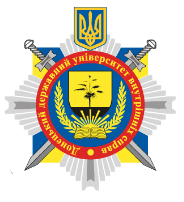THEORETICAL AND LEGAL APPROACHES TO THE DETERMINATION OF THE CONTEXTUAL ELEMENTS OF WAR CRIMES
DOI:
https://doi.org/10.32782/2709-9261-2024-1-9-17Keywords:
contextual elements, international humanitarian law, armed conflict, war crimes, international crimes, qualification, International Criminal Court, criminal responsibility, punishmentAbstract
The article examines the peculiarities of determining the contextual elements of war crimes. It is indicated that the modern legal system of Ukraine needs the ratification of the Rome Statute, which will provide an opportunity to more comprehensively protect national security, interests and social relations by strengthening the judicial system. However, an important aspect is also that the ratification of the Rome Statute is not retroactive (except for international crimes provided for by treaty international humanitarian law, to which the statute of limitations does not apply). At the same time, delayed justice is an obstacle to ensuring a proper investigation and trial procedure, and a country that is not a State party to the Charter is deprived of most opportunities in the field of protection of the civilian population and military personnel during the operation of a special legal regime of martial law. The need to ratify the Rome Statute is also determined by Ukraine's European and Euro-Atlantic intentions. It is noted that certain qualification problems in practice are connected with difficulties in the interpretation of Art. 438 of the Criminal Code of Ukraine, which provides for criminal liability for violations of the laws and customs of war. Qualification of a criminal offense under Art. 438 of the Criminal Code of Ukraine is possible only if the actions listed in the disposition of part 1 of this norm are committed in the conditions of an armed conflict and the subject is aware of this circumstance. The establishment of such a fact provides grounds both for criminal prosecution and the formation of a platform for the prevention of such criminal offenses. It is concluded that the definition of the contextual elements of war crimes and the corresponding correlation with the provisions of international humanitarian and criminal law provide a basis for creating a set of preventive measures, which, in addition to criminological ones, can and should include criminal legal and criminal procedural ones. Within the framework of preventing violations of the laws and customs of war, criminal offenses against the foundations of national security and illegal acts committed as part of a criminal organization or organized group may be actualized and subjected to criminological influence.
References
Римський статут Міжнародного кримінального суду. URL: https://zakon.rada.gov.ua/laws/show/995_588#Text
Настільна книга судді: матеріали для розгляду справ про міжнародні злочини. URL: https://nsj.gov.ua/files/1687510022%D0%9C%D1%96%D0%B6%D0%BD%D0%B0%D1%80%D0%BE%D0%B4%D0%BD%D1%96%20%D0%97%D0%BB%D0%BE%D1%87%D0%B8%D0%BD%D0%B8%20%D0%9D%D0%B0%D1%81%D1%82%D1%96%D0%BB%D1%8C%D0%BD%D0%B0%20%D0%9A%D0%BD%D0%B8%D0%B3%D0%B0%20%D0%A1%D1%83%D0%-B4%D0%B4%D1%96.pdf
Застосування норм міжнародного гуманітарного (мгп) та міжнародного кримінального права (мпк). URL: https://newjustice.org.ua/wp-content/uploads/2020/02/Curricula_NJ_IHL_ICL_2019_UKR-1.pdf
Текст проєкту нового Кримінального кодексу України. URL: https://newcriminalcode.org.ua/criminal-code





